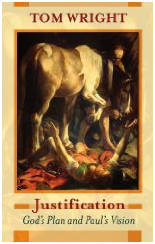Q&A: Having just looked up Psalm 149.3 I came upon this… What do you make of it and what is your opinion?
Anonymous asks: Having just looked up Psalm 149.3 I came upon this item (http://www.freedomministries.org.uk/masters/idiom11c.shtml) What do you make of it and what is your opinion?
OK. Psalm 149.3 in the ESV is this:
Let them praise his name with dancing,
making melody to him with tambourine and lyre.
On the face of it, the psalm looks like a reasonably ordinary song of praise. The simple phrase Praise the LORD! in the first verse echoes the very clear sentiments of the very next psalm (150) – Let everything that has breath praise the LORD! Praise the LORD! Psalm 150 seems to a simple call to exalting God “for his mighty deeds.. his excellent greatness” (v2) and, like Psalm 149:3 calls us to “Praise him with tambourine and dance” (v4). The two psalms seem to go together.
The link that Anonymous references is to an organisation started by one Andrew Dobbin with the following agenda, taken from the sites About Us page,
Freedom Ministries was started in 1990 by Andrew Dobbin who at that time was living in Bushmills, N.Ireland.
He began to be concerned about the “infiltration” of pop-idiom music and other forms of entertainment into the Church, things which by their very nature tend to entertain rather than teach and edify.
The application of this to the psalms is made by Peter Masters (from the referenced page)
Some psalms refer to musical instruments which were not normally associated with worship at all, either in the Temple on feast days, or for accompanying psalms and spiritual songs. These other instruments were played on festive occasions and for enjoyment and recreation.
It is failure to identify these ‘civil life’ references that causes people to think that the Psalms condone a musical jamboree policy for worship.
With reference to Psalm 82, Dr. Masters continues:
The formula is the same as ever:- tambourines for national festivities and cultural dance, harp-like instruments for psalm-singing, and trumpets and cymbals used exclusively in the Temple orchestra under careful restraint for the sacrifices connected with these feasts.
And with reference to Psalm 149:3 he writes:
Psalm 149.3 is also quoted in support of today’s pop-music activities, and is said to condone dancing in worship…
However, the question must be asked, is the psalmist speaking about acts of direct spiritual worship, or is he speaking about the cultural, recreational life of the nation? As we read through the psalm the answer becomes obvious.
The implication is that dancing and tambourines have no place in “direct worship” of the Christian kind.
This is classic overcategorisation derived from legalism. Let me point out
- What on earth is “direct worship”? Can worship ever by “indirect”? Something is either worshipful or it is not! There’s a false dichotomy here.
- This false dichotomy arises, it seems, from a correlation of “direct worship” with OT “temple worship.” This implies an equating of direct Christian worship with OT temple worship which is simply not the case. This fails to take into account not only the significant unfoldings in the covenantal life of God’s people from OT to NT it also simply an overrestriction of something general (“worship”) into something very very particular (the temple).
- And finally, what on earth is wrong with “entertainment”? Yes, for sure, there is an inconsistency between facile or vapid entertainment that does nothing but amuse, and true expression of worship. But God is a God of experience and expression – and worship rightly includes the entertainment of all our senses and the catching up of our whole being in bringing glory to God.
So pick up your tambourine and guitar (or pipe organ! – the beauty of which I am coming to appreciate despite the fact that you can’t pick it up!) and dance before the Lord. Let our whole being and all that we are praise his holy name.
Amen.

 Bishop John has
Bishop John has 

